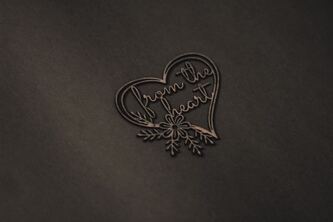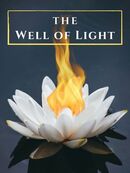April 2023 Newsletter
The Drama Triangle
Those who persecute others are warding off knowledge of their own fate as victims.
Alice Miller
Those who persecute others are warding off knowledge of their own fate as victims.
Alice Miller

These turbulent and chaotic times of divisiveness, finger-pointing, and othering create enormous opportunities for deep soul-healing and awakening to our personal and collective evolutionary journey and purpose. How can we heal the wounds that separate, alienate and marginalize us while increasing our sense of belonging as we expand our authentic interconnection with all of life? This month we are focusing on the Drama Triangle and how our longing to belong can erode our authentic growth and self-expression while trapping us in an unconscious dynamic of control games.

We, humans, lie! We constantly exaggerate and tell “half-truths” to disguise our fear, shame, and discomfort in a world of pretense, expectations, uncertainty, and separation. Studies show that lies comprise about 35% of our conversations. We tell lies that get us entangled in a complex web of stories to make ourselves look in ways we think will make us acceptable and enhance our sense of belonging. As a general rule, lying is a symptom of one’s distrust or inability to deal with perceived problems, threats, or insecurities. Understanding the drama triangle can support us in living more authentic, connected, and purposeful lives.
We're all islands shouting lies to each other across seas of misunderstanding.
Rudyard Kipling
Rudyard Kipling

Psychologist Stephen Karpman developed the theory that in human relationships that lack authenticity, you’ll often see what he named, the “Drama Triangle”, a control game that identifies dysfunctional relationships. These relationships shift between three roles, Persecutor, Rescuer, and Victim, all held in place by guilt, shame, and blame. This model refers to roles people unconsciously play, or try to manipulate other people to play, not the actual circumstances in someone’s life. We can easily swap interchangeably between roles. Here is how Karpman describes these three roles:
Victim: Poor Me
People we classify as victims in this context are those who take an attitude of helplessness. They don’t know, can’t do, or can’t achieve things. They always want others to help and support them, and never stop complaining about their situation. People in this role put their responsibilities on other people’s shoulders.
Saviors/Rescuers, who you might think are the most positive force in the drama triangle, need to feel needed. However, the help they give isn’t selfless. Like the victim, they feel insignificant and want other people to depend on them to feel seen or to earn people’s affection. At the same time, they may complain about feeling exploited. They often move into the role of victim.

Why is this important?
If we can see ourselves in these roles, we can not only improve our relationships, we can also begin to find solutions to the larger cultural, economic, and social problems we face today. We have all been in these roles at different times in our lives, but generally tend to have one dominant role we assume. It’s useful to begin to observe how they play out in our lives, along with observing how others participate in the Drama Triangle. But, be careful not to use the label to justify your subjective position in an argument, disagreement, or conflict.
An example on a family level might be a father berating his son over his grades. The boy stating, “I’m just not smart enough”. Then the mother chimes in saying to the father, “quit taking out your frustration on him, I will help him with his homework.” This dynamic makes the boy the victim, the father the perpetrator, and the mother the rescuer. This situation can become an unconscious power game leaving the boy feeling helpless and inadequate, the father angry and misunderstood, and the mother frustrated and not feeling appreciated.
If we can see ourselves in these roles, we can not only improve our relationships, we can also begin to find solutions to the larger cultural, economic, and social problems we face today. We have all been in these roles at different times in our lives, but generally tend to have one dominant role we assume. It’s useful to begin to observe how they play out in our lives, along with observing how others participate in the Drama Triangle. But, be careful not to use the label to justify your subjective position in an argument, disagreement, or conflict.
An example on a family level might be a father berating his son over his grades. The boy stating, “I’m just not smart enough”. Then the mother chimes in saying to the father, “quit taking out your frustration on him, I will help him with his homework.” This dynamic makes the boy the victim, the father the perpetrator, and the mother the rescuer. This situation can become an unconscious power game leaving the boy feeling helpless and inadequate, the father angry and misunderstood, and the mother frustrated and not feeling appreciated.
You can see this same triangle on a global scale where organizations and countries take on the same roles. For example, the situation today has Ukraine in the victim role, with Russia as the perpetrator, and the US and its allies being the saviors. Observing from this perspective, we find ourselves locked into a perpetual and unsolvable situation. This view doesn’t take into account the fear of Russia being surrounded by nuclear weapons or the very long history of the region and its people. Nor does it look at hidden motives like the billions of dollars that are made on arms defense, or the strength and will of the Ukrainian people. So the roles change depending on your perspective.
This model also brings light to Legacy Burdens, the ingrained parts of us that involve extreme beliefs and emotions stemming from traumatic experiences inherited from family, culture, or ancestors. So how do we break out of these personal, familial, cultural, and ancestral power and control games? Here are a few practices to bring awareness and healing to these drama triangles:

- Notice the little lies and exaggerations we make to feel more connected and have a sense of belonging and how we sacrifice our authenticity for connection.
- By being more deeply introspective and honest with oneself, truly making an effort to create genuine, authentic, and transparent bonds with other people.
- Rescuers need to try to help in an empathetic manner by encouraging the victim to overcome challenges on their own. The ‘victim’ should gain independence and confidence, not lose it.
- A persecutor needs to stop focusing so much on others and instead focus on themself. Also, they ought to notice what need is being fulfilled by blaming or scorning others.
- Victims need to take responsibility for themselves, instead of waiting to be rescued.
- To openly discuss the power games with others, along with journaling about our experiences, can help us recognize blind spots that normalize the behavior.
The most important thing is to explore our sensations, emotions, and mental narratives to understand why we take on these different roles. Through compassionate honesty and authenticity with ourselves, we can begin to integrate our wounded parts and create the opportunity for an evolutional jump in what it means to be human. This involves being willing to explore our shadow and disowned parts that get us into the control games in the first place.
I hope that you will spend some time exploring this model and the myriad of ways you can easily slip into one or more of these roles when not present. Thank you for your ongoing partnership in working toward a world that works for all life.
With love and gratitude,
Michael & the Well of Light Team
I hope that you will spend some time exploring this model and the myriad of ways you can easily slip into one or more of these roles when not present. Thank you for your ongoing partnership in working toward a world that works for all life.
With love and gratitude,
Michael & the Well of Light Team
You and I possess within ourselves at every moment of our lives, under all circumstances,
the power to transform the quality of our lives.
Werner Erhard
the power to transform the quality of our lives.
Werner Erhard
